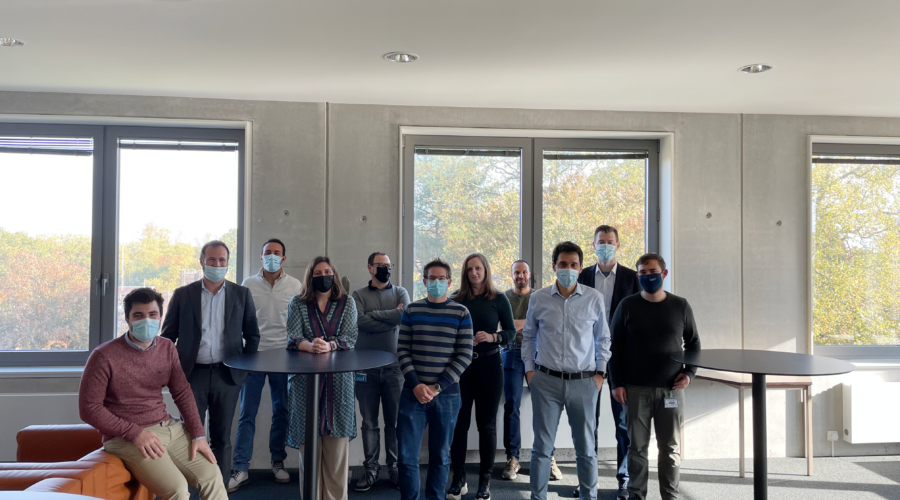IMDEA Networks

Proteger a los usuarios del espectro con el Internet de las cosas
El proyecto SOCRATES ha demostrado que es posible proteger el espectro de intrusos malintencionados, identificando y localizando transmisiones no autorizadas
15 Noviembre 2021

El proyecto SOCRATES, liderado por IMDEA Networks Institute (instituto de investigación de redes con sede en Leganés, Madrid, España), ha concluido con éxito a finales de octubre 2021, demostrando experimentalmente que una novedosa red del Internet de las Cosas puede utilizarse para proteger el espectro, identificando y localizando las transmisiones no autorizadas. El proyecto ha recibido financiación de la División de Retos de Seguridad Emergentes de la OTAN – Programa de Ciencia para la Paz y la Seguridad (SPS, por sus siglas en inglés). Asimismo, los otros dos socios que han colaborado en el proyecto son Electrosense, una asociación sin ánimo de lucro de Suiza (una iniciativa de crowdsourcing que recoge y analiza datos sobre el espectro) y la Katholieke Universiteit (KU) Leuven de Bélgica.
El workshop final tuvo lugar en Lovaina, el 29 de octubre de 2021, con la participación de los miembros del proyecto y del Dr. Claudio Palestini de SPS NATO. En el workshop se presentaron los principales logros del proyecto, así como el demostrador final. SOCRATES ha estudiado el problema de que, en la sociedad actual, la infraestructura inalámbrica transporta servicios críticos como la red celular, la comunicación aérea y el GPS. El espectro está cuidadosamente asignado, con bandas con y sin licencia, y cualquier transmisión no autorizada o que no cumpla las normas reglamentarias puede causar estragos en estos servicios. Mientras que en el pasado era difícil crear transmisiones personalizadas en el espectro, y su coste era prohibitivo, hoy en día el coste de los precios de la tecnología de radiocomunicación es tan bajo que puede estar al alcance de cualquier individuo, incluidos los intrusos malintencionados.
El Dr. Domenico Giustiniano, Profesor asociado de investigación en IMDEA Networks Institute que ha coordinado el proyecto, resume los principales logros del mismo: «SOCRATES es un paso adelante hacia un sistema preciso, autónomo, rápido y seguro que aprovecha una novedosa arquitectura del Internet de las cosas para proteger el espectro y los servicios y usuarios que dependen de él. El demostrador presentado en el taller final ha mostrado un prototipo integrado en la red Electrosense, con las novedosas capacidades de detectar anomalías en el espectro, como una transmisión desconocida y no autorizada en el espectro, y encontrar su ubicación geográfica con una gran precisión. Ha sido el resultado del esfuerzo conjunto de los tres socios del proyecto, con novedosos diseños de hardware, algoritmos e implementaciones que han convergido en un demostrador final. Agradecemos a todos los miembros del proyecto el gran esfuerzo realizado y a SPS NATO el apoyo a esta ambiciosa iniciativa».
La profesora Sofie Pollin, de la KU Leuven, añade que «con el sensor SOCRATES, hacemos que el análisis del espectro sea asequible para todo el mundo, y los algoritmos de SOCRATES tienen el potencial de crear conocimientos sobre el espectro que pueden ser útiles para muchas partes interesadas.» Los posibles interesados en las soluciones de SOCRATES son los proveedores de telecomunicaciones y los controladores aéreos.



Comentarios recientes